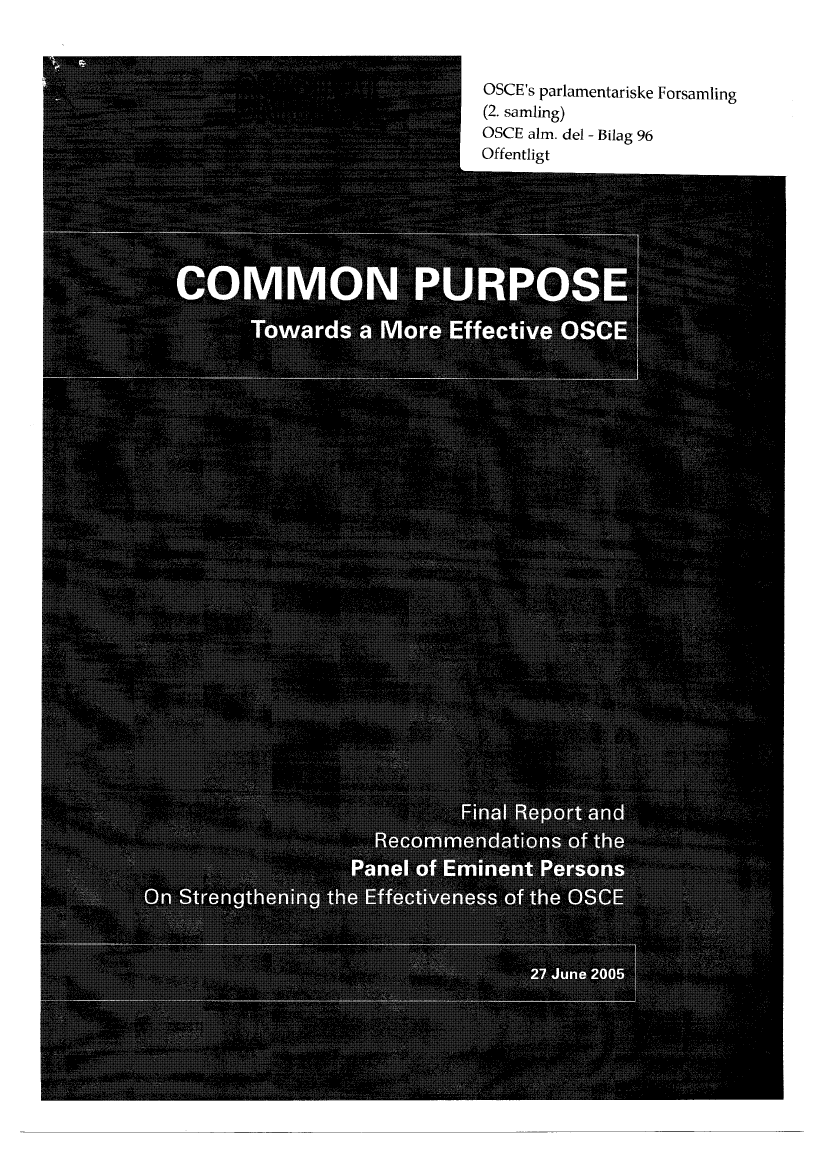
OSCE's parlamentariske Forsamling
(2. samling)
OSCE alm. del - Bilag %
Offentligt
COMMON PURPOSE
Towards a More Effective OSCE
Final Report and
Recommendations of the
Panel of Eminent Persons
On Strengthening the Effectiveness of the OSCE
27 June 2005